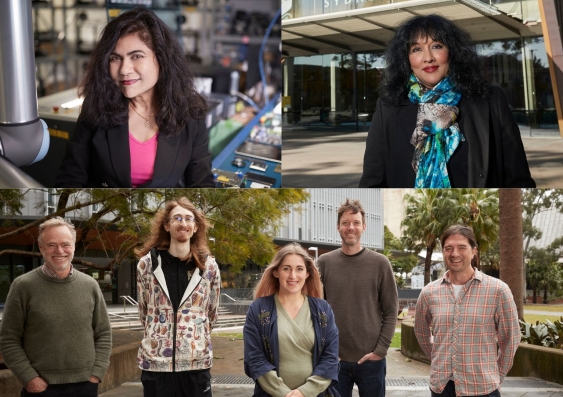UNSW Sydney researchers were awarded four prizes at last night’s prestigious 2022 Australian Museum Eureka Prizes., opens in a new window
UNSW researchers studying the impact of the 2019 bushfires, promoting an understanding of science, showing leadership in science, and turning the glass microscope slide into a diagnostic lab were recognised in the 2022 Australian Museum Eureka Prizes, Australia's most high-profile science awards.
Professor Raina MacIntyre, the Kirby Institute at UNSW, won the Eureka Prize for Leadership in Science and Innovation. Prof. MacIntyre is Head of the Biosecurity Program at the Kirby Institute at UNSW. She is a world-leading researcher on respiratory protective devices, pandemics, smallpox, and emerging infectious diseases.
A public health physician, epidemiologist and researcher, Prof. MacIntyre has taken a significant leadership role in the international response to the COVID-19 pandemic. Her contributions to infection prevention, informed by extensive research into emerging diseases, vaccines, and masks, has helped establish international public health policies and processes.
“Leadership in science is about being true to your original ideas and pursuing them in the face of obstacles and striving to be yourself rather than coveting what someone else is doing. It is about mentoring and building the next generation of diverse researchers and providing them opportunities for growth. It is about collaborating and recognising the importance of interdisciplinarity in science. UNSW has given me many opportunities and a vibrant, collaborative environment for research. I am grateful for this recognition and to be doing what I love with an amazing team, superb collaborators and a home at the Kirby Institute,” Prof. MacIntyre said.
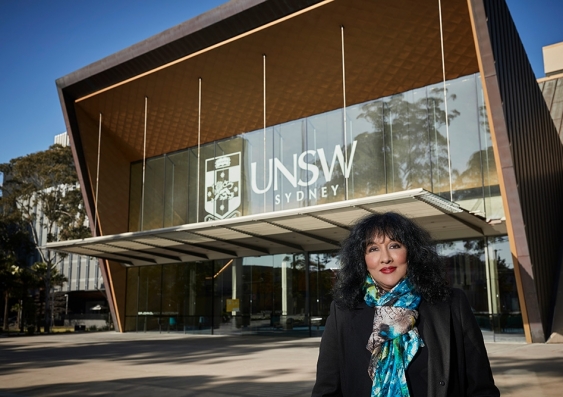
A public health physician, epidemiologist and researcher, Prof. MacIntyre has taken a significant leadership role in the international response to the COVID-19 pandemic. Photo: UNSW
Read more: $2m funds COVID research at UNSW including new RNA treatment, opens in a new window
Scientia Professor Veena Sahajwalla, UNSW Science, was recognised for her work in communicating the science of sustainability to broad community audiences. She won the Celestino Eureka Prize for Promoting Understanding of Science.
Prof. Sahajwalla is the pioneering inventor of a new generation of ‘green’ materials and sustainable products. Through her rigorous research and extensive community and industry engagement, she is shifting the mindset of the nation to see unwanted materials not as waste, but as a valuable resource.
“It’s an incredible honour to be awarded the 2022 Eureka Prize for promoting the understanding of science. It is such a privilege to be able to share with the wider community the important role science plays in our daily lives. Without science, we would not be able to enjoy most of the things we now take for granted,” Prof. Sahajwalla said.
“Science has become much more mainstream than ever before, and its role in seeking solutions for things like COVID-19 and our pressing waste, sustainability and climate challenges, has created a wider thirst for knowledge and optimism. I and the team at the UNSW Sustainable Materials Research and Technology Centre (SMaRT@UNSW) are dedicated to collaborating with the community and industry to tackle the challenges we face to help deliver better social, environmental and economic outcomes.”
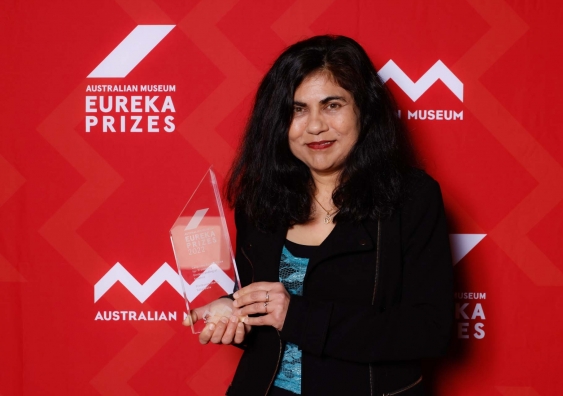
Prof. Sahajwalla is the pioneering inventor of a new generation of ‘green’ materials and sustainable products. Photo: Tim Levy/Australian Museum
PhD candidate Casey Kirchhoff, Dr Mark Ooi, Associate Professor Will Cornwell, Professor Richard Kingsford and PhD candidate Thomas Mesaglio, The Environment Recovery Project at UNSW Science and the German Centre for Integrative Biodiversity Research won the Department of Industry, Science, Energy and Resources Eureka Prize for Innovation in Citizen Science.
UNSW’s Environment Recovery Project has been integral to studying the impact of the 2019-2020 bushfires that devastated 24 million hectares of Australian bushland.
The Project has mobilised 1600 volunteers who have made more than 25,000 observations helping track damage, biodiversity loss and gathering vital recovery data.
“We are so thrilled to get this prize. It shows how many people out there, really care about the environment and were willing to get out there and record what was recovering after the devastating 2019-2020 fires,” PhD candidate Ms Kirchhoff said.
Professor Kingsford said: “It is so good to be recognised for the impact our researchers have had in engaging with the broader public after the incredible fires. There are such great opportunities for us professional scientists to harness the amazing citizen scientists out there to obtain the data we need over such large areas of Australia.”
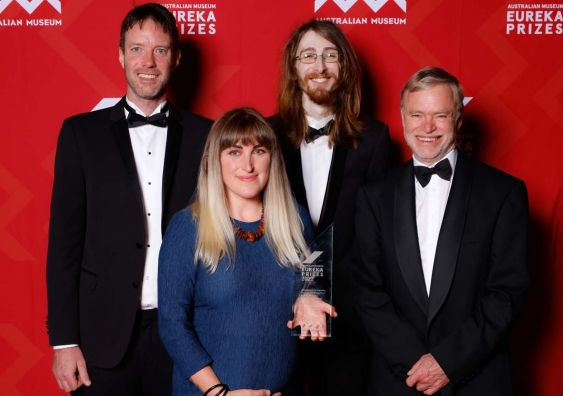
UNSW’s Environment Recovery Project has been integral to studying the impact of the 2019-2020 bushfires that devastated 24 million hectares of Australian bushland. Photo: Tim Levy/Australian Museum
Garvan Institute of Medical Research are part of the group ‘NanoMslide’, including La Trobe University, University of Melbourne, and Peter MacCallum Cancer Centre, to win the ANSTO Eureka Prize for Innovative Use of Technology.
By applying a patented coating created with cutting-edge nanofabrication technology, the collaborators behind NanoMslide are turning the humble glass microscope slide into a diagnostic lab. Cancer cells interact with the coating and produce an instant colour variation, enabling fast, accurate, cost-effective diagnoses without the need for specialised equipment.
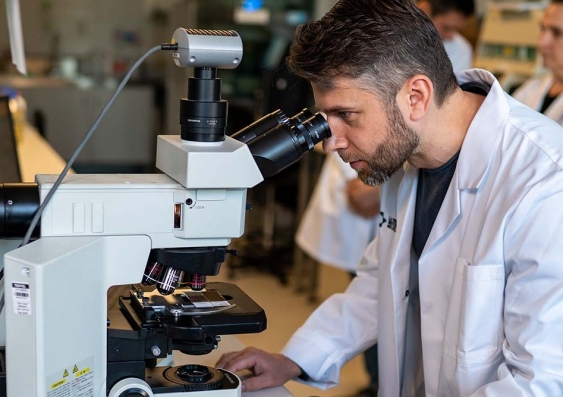
The NanoMslide team won the ANSTO Eureka Prize for Innovative Use of Technology Photo: Daniel Calleja/Australian Museum


